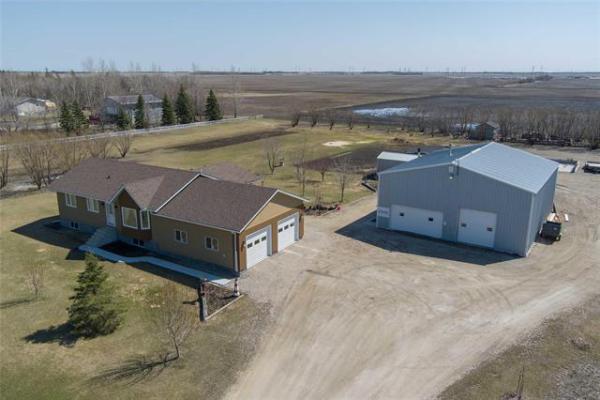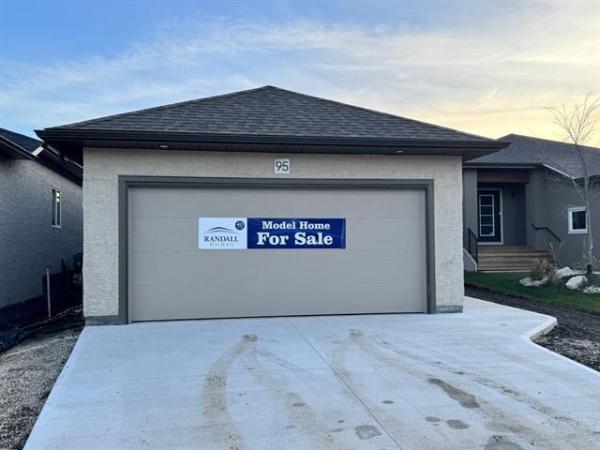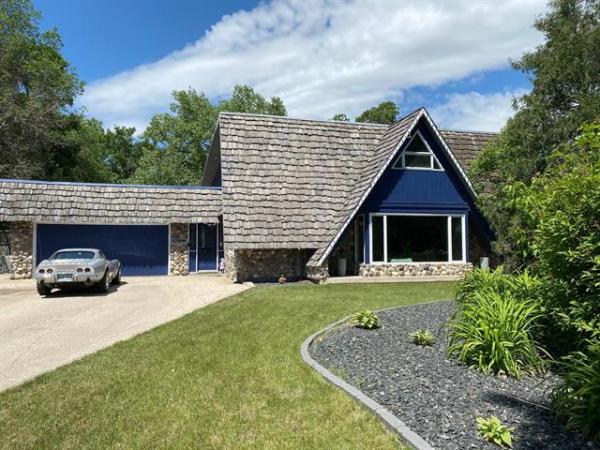




Conquest Manufacturing is striving to change Canadians' minds about modular homes, but it isn't easy.
Even with the success of projects like the Karoleena four-unit, three-story condominium Conquest manufactured for Calgary, they still have to fight popular misconceptions.
"It's an unfair classification, but people still associate modular homes with those ugly, rectangular trailers from the '70s and '80s developments," says manager Donovan Fowke.
"We're working to change the face of prefab, modular buildings, but we still come across this stigma on a regular basis. The quality of our finished products is far beyond whatever has been done in the past."
In one Manitoba town, they even had to challenge a bylaw to be able to build.
"We had to fight really hard with the city council. This stigma against modular homes has been around for so long, it's not going to vanish overnight," Fowke says. "We had to prove that we build to national building codes. These are not mobile homes, they're genuine homes."
Delivering on time, often within four months of when the home is ordered, and on budget sets them apart from the competition, he explains.
"We have the ability to turn around a project in a matter of weeks, which is a huge advantage. Since everyone we work with, from the designer to all the contractors, is on staff, there are very few, if any, unexpected delays," he adds. "We fix potential problems before we even begin the project, so there are no deviations in the quoted price."
Conquest Manufacturing builds all its homes in its factory at Altona. Residential homes typically cost $95 per square foot.
"With the recent advances in structural engineering and AutoCAD technology, we are able to make modules of all different shapes and sizes. We can take any floor plan and figure out how to build it in pieces. We haven't yet come across a design we couldn't build," Fowke says. "It doesn't have to be a square, cube, or rectangle. Each project is completely built to order."
Having a home prebuilt within a factory instead of on site offers an instant environmental advantage, especially to the surrounding neighbours. The finished home is delivered in pieces -- or modules -- to the site and can be assembled in one eight-hour day.
"There's reduced noise at the site, limited travel back and forth, and considerably reduced waste and garbage, not to mention lower insurance costs at the site and less inconvenience to the neighbourhood," Fowke explains. "All the materials left over from the construction process are either used in another project or donated to someone who can use them, so there's absolutely no waste."
Conquest homes can utilize the latest developments in green housing, including geothermal heating and cooling systems, low-flow plumbing fixtures, formaldehyde-free insulation, rainwater capture and solar panels. These innovations have helped the company earn the highest LEED ratings for green housing.
"All of our environmental options are customer-driven. Our customers are willing to pay a little extra for environmentally friendly features," Fowke says.
However, not every lot is suitable for a modular home. Heavily treed lots are usually not accessible unless the client is willing to have some of the trees removed. Also, many infill lots prove impossible for modular-home installation.
"It's usually too difficult for us to get our flatbed trucks and cranes into an infill lot, and we need a large staging area outside the lot -- sometimes we have to close down two blocks for assembling the home," Fowke explains.
Potential customers need to be able to fully envision a project before it begins, as they won't be able to tweak final details the way they would with traditional construction, he adds.
"Due to the way we construct the home, it's difficult for us to make changes. The home is brought to the site already constructed, so the owner doesn't have the opportunity to walk through it as it is in various stages. They lose some control over the same details," Fowke says. "Also, we are somewhat restricted in the materials we use. Because of the weight involved, it's hard for us to accommodate any requests for concrete or steel."
Conquest's latest project is an innovative new line of Challenger homes. These homes, which will be targeted to first-time homebuyers and empty-nesters, are architect-designed and future-proof, with a 15-year warranty.
"The home is a vital part of a person's life and lifestyle, so we've designed these homes with an open-flow living area designed to keep people together," Fowke says.
The Challenger line of homes will be launched in July or August this year.
No matter how busy Conquest Manufacturing gets, the company is committed to staying in Altona.
"We've been here for four generations. The company was started by my great-grandfather," Fowke says. "We have great connections to our community and dedicated, loyal workers with a high skill set. We've never even contemplated relocating."




